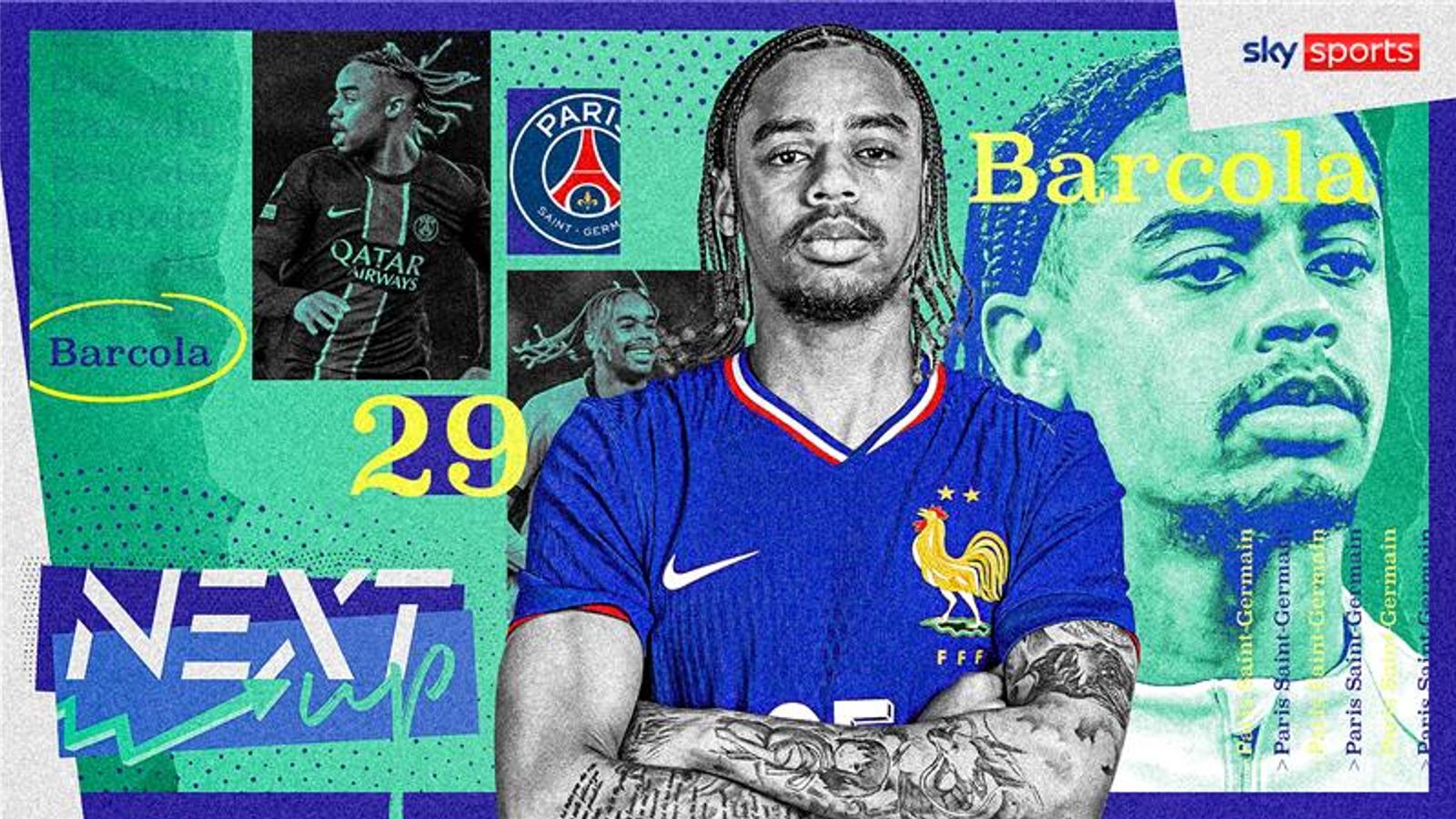
“That was a turning point,” Jean-Francois Vulliez tells Sky Sports.
“A club in Switzerland was interested because he was not playing for the first team. At that time, Laurent Blanc was the coach and we had Karl Toko Ekambi. But he decided he wanted to leave so the coach decided to stop the loan because we might need Bradley.
“It was a key moment because he realised that if Toko Ekambi left, Bradley could be a solution and there was an opportunity to use him. Toko Ekambi did leave and Bradley stayed. One match later, there was an injury and Laurent needed him.”
Thrust into the Lyon starting line-up, he started scoring, finding the net four times in six appearances, including a winner away to PSG at the Parc des Princes that would become his home. His career path was set on a completely different trajectory.
“It was the beginning of the story.”
Vulliez, the former head of Lyon’s academy, has known Barcola since he was just a boy. He saw the transformation, felt the joy at seeing a level-headed lad with talent to burn progress into a France international featuring for his country at Euro 2024.
But Vulliez is also keen to stress that this was no generational sensation, just another player with big ambitions. “He was a normal kid, he never played above his age category, never jumped a stage. His maturation was a normal process,” he explains.
“It is an interesting pathway because every player is different. Sometimes, there are players like Mbappe who mature very early. Others need time. Bradley never played for France in the age-group teams. He was a good player but not physically ready.
“We were very patient with him at Lyon because we knew he had the skills, we just had to wait for that maturation process, that psychological maturation, that physical maturation. When that transformation eventually happens, they will improve quickly.”
Perhaps it helped that it took time because it shaped his development. Unable to simply bully defenders, not yet the lanky but imposing figure that he has now become, Barcola had to find other ways. “He developed his intelligence,” says Vulliez.
“He was able to scan the pitch, take good information and use the space. Very early, he had this and he had speed. Then, he progressed with his muscles, became powerful. It is a combination of these tactical abilities, technical abilities and physical abilities.”
That evolution continues, particularly Barcola’s tactical progression. Until the age of 17, he was used as a No 9. “He was very clever with his runs inside.” But like many young players, he has made the breakthrough at senior level operating from the left flank.
“Because he played as a striker, he retains that ability to know when he needs to come inside and when he needs to run beyond. With Bradley in your team, you need to use this capacity to come between the lines or run from deep, because it is his strength.
“We never had a problem with him at the academy because he is intelligent and he listens so when you are the coach that makes it easier to manage him because he can adapt to whatever strategy the coach wants to use. He understands because he is clever.
“I do not think you can transform a player after the age of 17 because if the player does not have the intelligence at that age then they will never have it. That is why it is vital to develop this intelligence early. Bradley has it. You can adapt his position later.”

